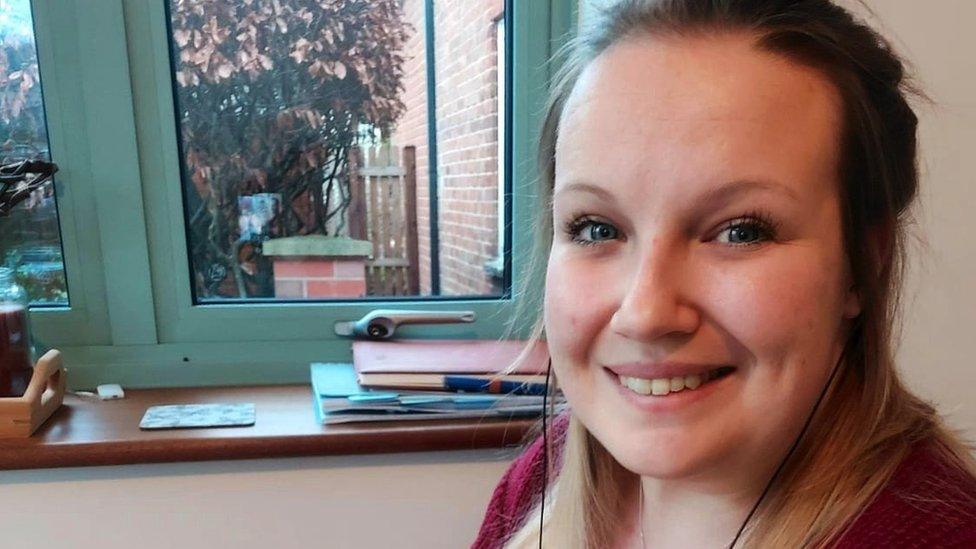Shielding from Covid: 'I want to be able to live again'
- Published
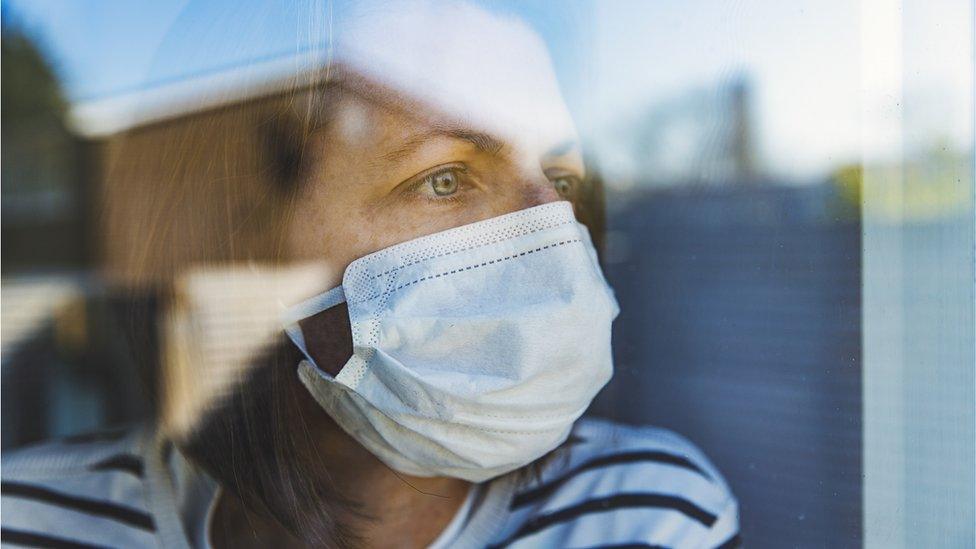
There are about four million people in England who have been advised to shield from coronavirus
From April, people who are classed as clinically extremely vulnerable to Covid-19 will no longer need to shield, according to the government's road map.
There are currently about four million people in England in this category.
The government said it will "confirm advice and next steps" for those shielding "nearer the time".
But what does this mean for those who have been shielding throughout the pandemic?
The BBC has spoken to three people about their experiences and what the end of shielding means for them.
'I want to be able to live'
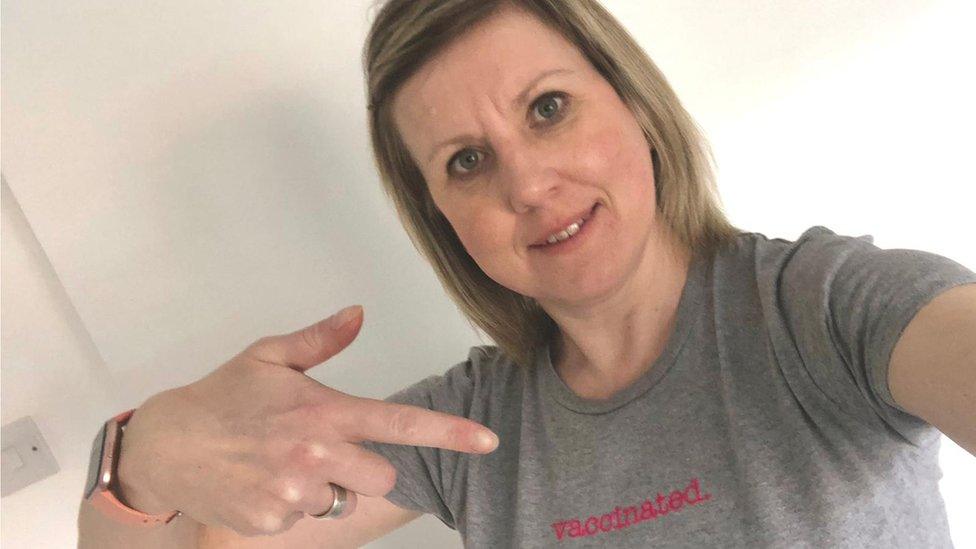
Sammie Read, 41, from Mendlesham in Suffolk said she wants to be able to live again after shielding throughout the pandemic
Sammie Read from Mendlesham in Suffolk, has cystic fibrosis and is classed as clinically extremely vulnerable.
The 41-year-old said she felt people shielding had been "slightly left behind".
"I've had to look up all the details as there's been nothing from the government aimed directly at us, which I think is quite a shame," she said.
While Mrs Read sees herself as a "very positive person" she admitted she had "really struggled" in the third lockdown.
"The first lockdown was a bit of a novelty and you could do things around the house and go for nice long walks but this one is darker, the walks have been windy and wet," she said.
"Apart from leaving the house once a day for exercise I can't go out and I'm desperate to see my family. I really want to hug my son - I want to be able to live."
Mrs Read said all three lockdowns had been "a lot harder" for those who are shielding.
"I can't just go to the shop and grab a loaf of bread," she said. "I have to rely on so many other people.
"Luckily I have a great network of friends and family who can get me stuff but not everyone is in the same position."
After receiving her first vaccine three weeks ago, Mrs Read said her second dose would be "a game changer".
She has booked tickets to Latitude Festival at Henham Park in July and said: "I'd like to think we will get there."
'Fear of the unknown'
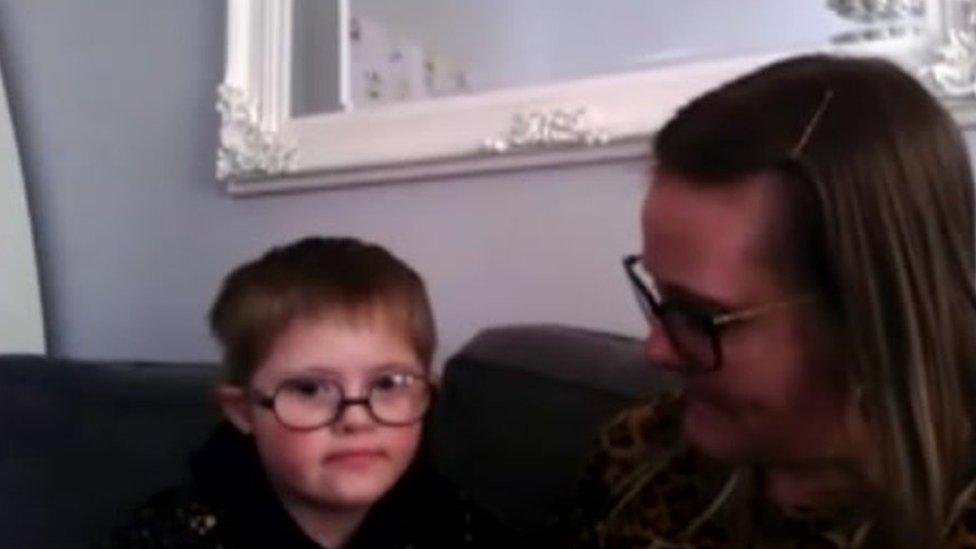
Six-year-old Eli Taylor recently received a letter saying he no longer needed to shield
Six-year-old Eli Taylor from Norfolk has been shielding since March and the first lockdown due to his heart condition and low immunity.
Last week he received a letter telling him he was no longer at greater risk than others in his peer group and no longer needed to shield.
His mother, Emma Taylor, said the family were "mystified" as to what had changed.
"It's obviously great news Eli is not at any greater risk - but are they sure?" she said.
"Why did they not think that before and what's changed? Eli gets very poorly very easily and even with a cough and cold it takes him longer to get over it."
Ms Taylor said she and her partner had decided not to send their son back to school until after the Easter holidays.
"I'm tentative I suppose," she said.
"It's still the fear of the unknown and that is just a piece of paper - but he's our little boy."
'Cautiously optimistic'
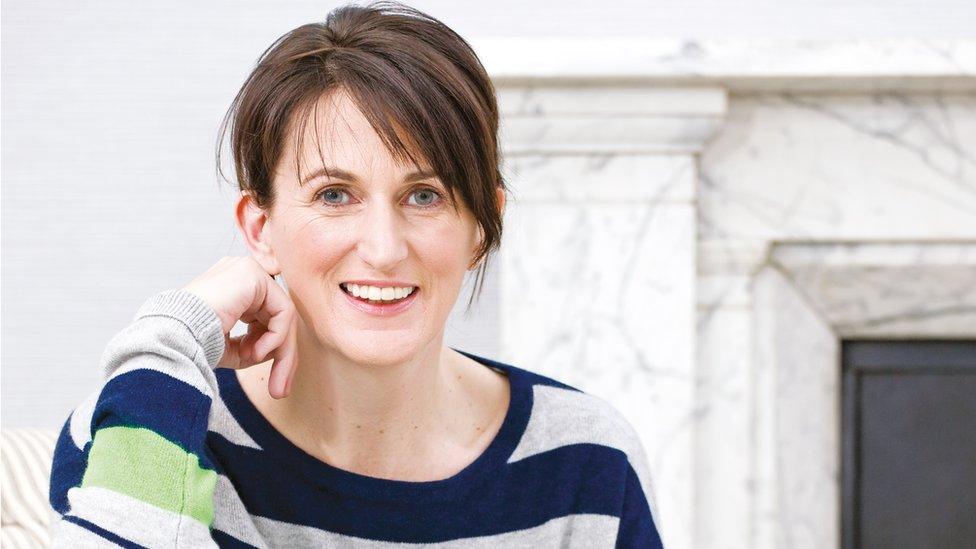
Freelance writer Laura James said she would be "balanced" in her approach to life when shielding ended
Laura James, from Reepham in Norfolk, said she was "cautiously optimistic" about the end of shielding.
The 51-year-old has been restricted since March, apart from a few weeks over summer, due to a genetic condition related to her lungs.
"It's been pretty much a year of doing nothing," she said.
"There is this view that people who are shielding are either 150 or didn't have a life before and that isn't true for the vast majority of us.
"We've been missing out in a more extreme way.
"I haven't been whizzing around shops, I haven't seen my daughter for a year."
The writer said although the end of shielding would be "marvellous", she had "healthy scepticism" about the future.
"I'm very much looking forward to being allowed out again but I will be very balanced in my approach," she said.
"There will be people who will go out and do everything, hug everyone, eat at every restaurant but I will be more cautious."
Mrs James said she could not see herself going to a busy pub or restaurant "for a long time".
"I will be choosing the things I really want to do, like seeing my daughter, and doing them as safely as possible," she said.

Find BBC News: East of England on Facebook, external, Instagram, external and Twitter, external. If you have a story suggestion email eastofenglandnews@bbc.co.uk
- Published22 February 2021
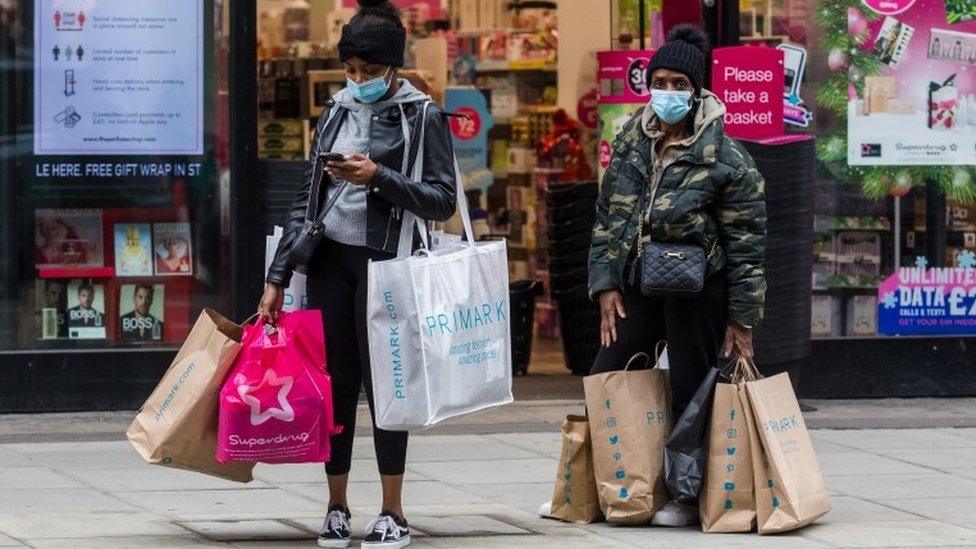
- Published13 July 2021
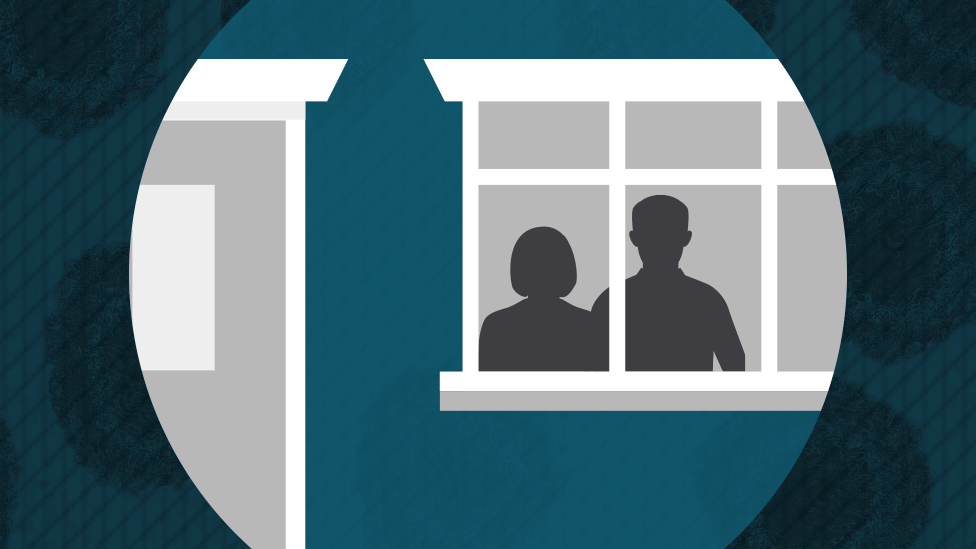
- Published16 February 2021

- Published27 January 2021
